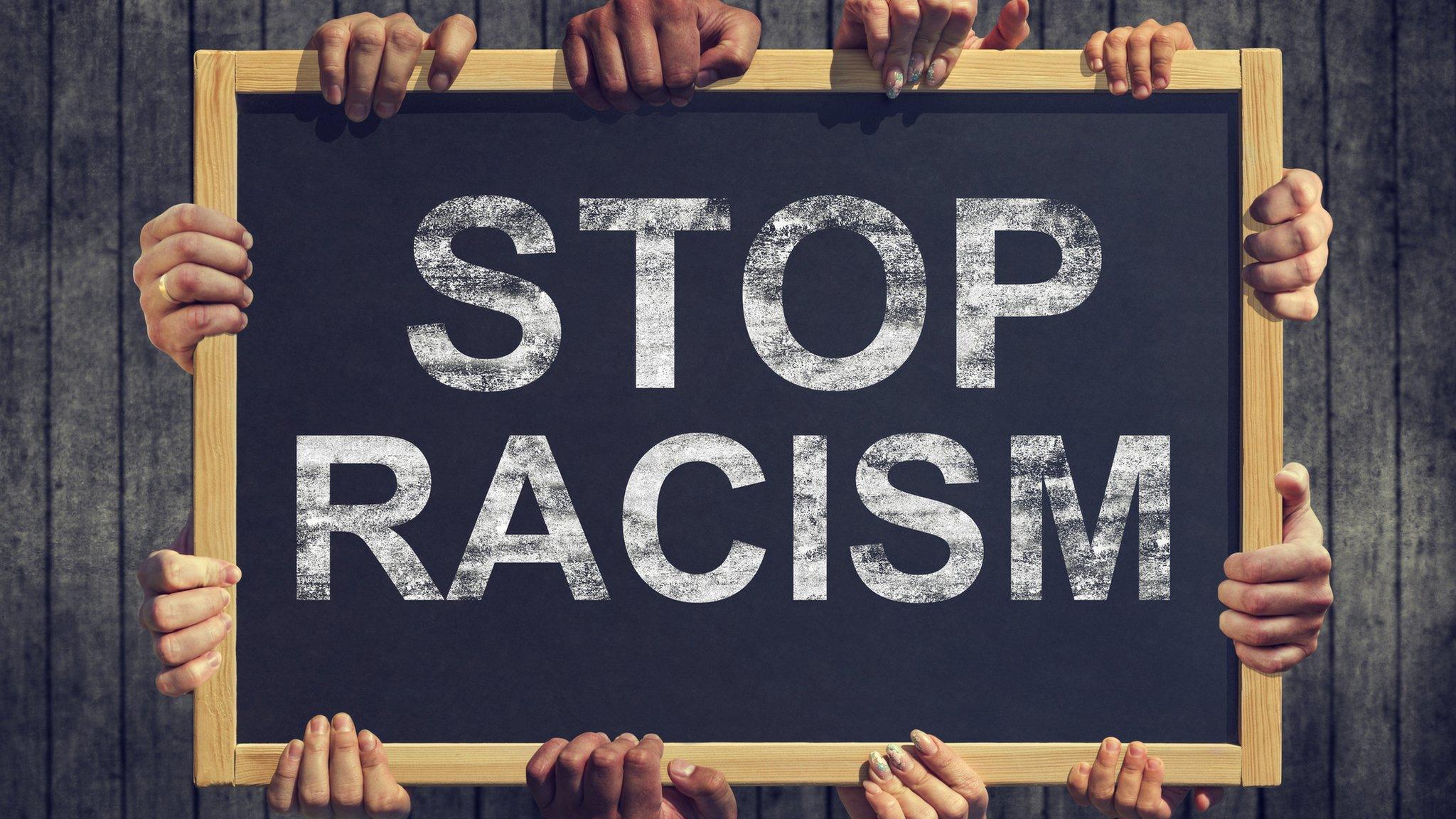Little Mix: Leigh-Anne speaks out about racism in the music industry
- Published
- comments
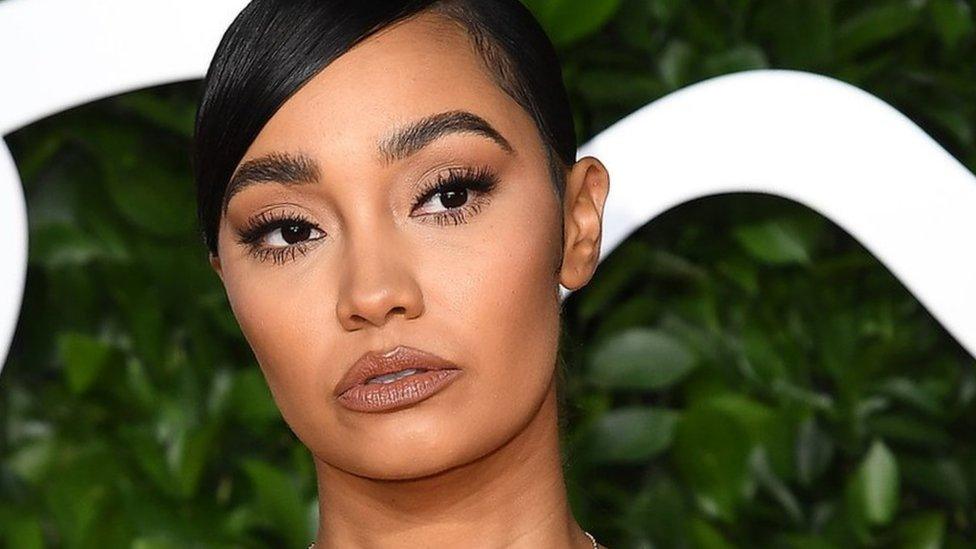
Little Mixer Leigh-Anne has had a busy few months with Jesy leaving the group, her pregnancy announcement and this week making history by becoming the first girl group to win Best British Group at the Brit Awards.
Well, it doesn't stop there, she also has a new documentary out, in which she talks about how racism and colourism have affected her life and career.
The programme has taken more than a year to make and Leigh-Anne talks about how she felt being the only black member of the group and speaks to other musicians about their experiences in the music industry.
Leigh-Anne said: "We all know that racism is a massive horrible issue in this country and I really wanted to delve deeper into it."
We look at the key takeaways from the show...
Diversity in the music industry
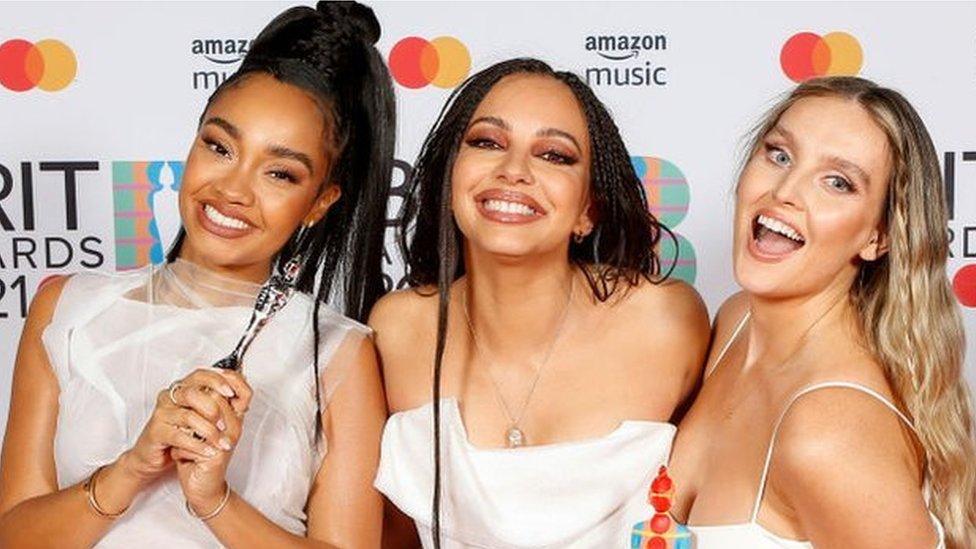
Little Mix made history this week by becoming the first girl band to win Best British Group. Leigh-Anne's new doc will look at racism in the music industry and how she felt being the only black girl in the band.
Leigh-Anne investigates the lack of diversity in the music industry and speaks to black British pop stars such as former X Factor contestant Alexandra Burke, Sugababes member Keisha Buchanan and singers Raye and NAO.
Alexandra speaks about the time she was told she was "too dark to be in the industry".
"That's what makes me feel at times that I don't want to be in this industry," she says. "They took my confidence away so much that I couldn't be me."
Keisha added: "the more mixed-race you look, the more palatable you are for the audience, the more you look white."
In the documentary Leigh-Anne gets emotional listening to their experiences, she says: "It was the most overwhelming moment of the documentary."
It was inspiring hearing them open up and it inspired me to open up more and it erased that feeling of not being alone. It was interesting as well because we all had such different experiences.
Research according to trade body UK Music claims there has been a significant increase in the number of black, Asian and minority ethnic staff in the music industry since 2016. However in higher paid jobs the representation is still low.
One reason Leigh-Anne wanted to do the documentary was to highlight the problem of racism in the media. "The lack of diversity is disgraceful", the singer said about the wider media industry.
This week, The Metro newspaper wrongly captioned their front page picture of Leigh-Anne's pregnancy photo with the name of her bandmate Jade Thirwall.
Leigh-Anne responded on Little Mix's Twitter account saying: "Why is it that the two women of colour are always mistaken for each other? 10 years in and still this is happening....this is another reason as to why I was fuelled to make my doc."
The Metro published an apology to their Twitter account.
But it isn't the first time Jade and Leigh-Anne have been misidentified and there have been many other instances when black celebrities are incorrectly named in the media.
Colourism
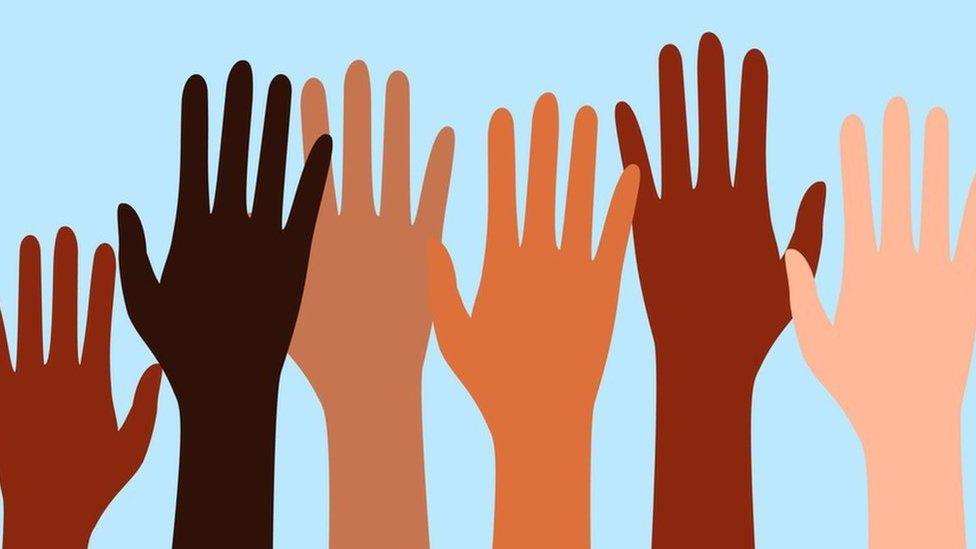
The main topic of the programme is racism but Leigh-Anne also talks about colourism.
She says: "I wanted to use my voice to address colourism because I am so aware of how awful it is and it is just something that needs to be spoken about."
Colourism is a form of racism. It is when a lighter-skinned person is treated better over a darker-skinned person due to the shade of their skin. It is also when people are negative about people who have a darker skin tone.
Leigh-Anne adds: "I know my privilege and I do address it in the documentary. What I address is that I know that if I was some shades darker that I wouldn't be in the band. I think that was so important for me to address because it is true."
"We know there aren't enough dark-skinned women that are being represented so that was something I really felt like I needed to talk about."
"I wanted to speak about my experiences and the way I felt in the band, being the black girl in the band and people identifying me as the black girl. I really wanted to explore why I felt so overlooked, so shadowed and it was down to my colour."
Leigh-Anne discusses her identity and how the question - what do you identify as? - is so personal.
I do identify as black. I have two mixed-race parents, so I have always identified as black growing up.
Leigh-Anne was brought up in a Caribbean household just like her parents were.
She felt like the public saw her as black and would be called the 'black girl' in Little Mix: "That's what I was and I owned it, but it is such a personal thing to say."
"I think it is hard for me to answer that question because I get scared to offend people as a mixed-race person [saying] that I identify as black because I know how bad colourism is and how dark-skinned people are not represented enough in the media at all."
"I understand the frustration of me saying I identify as black when I am evidently lighter."
Confidence
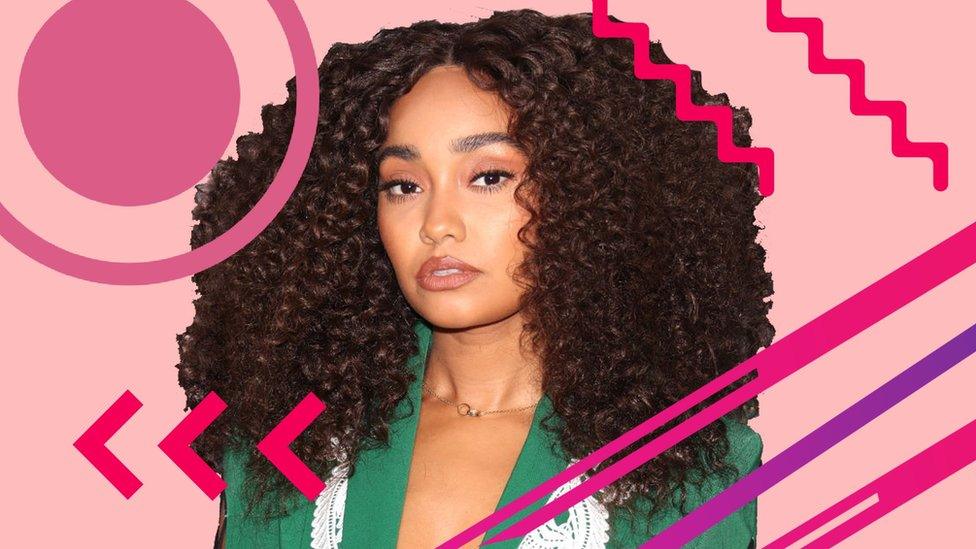
Filming for the programme took over a year and now it's out, Leigh-Anne feels this journey has made her feel more confident.
"I think now, me speaking out and telling the world of my experiences and hearing other people relate to me and hearing other people's stories, helps."
"Now I can own my power and I can be confident in myself. I wasted so much time not feeling like that and getting anxious before performances and meet and greets and thinking I wasn't going to get the same reaction as the [other] girls."
I wish I hadn't spent so long wasting my time worrying about that and I wish I could have just owned it then but you know what? We all learn and we all go on our own journeys.
Leigh-Anne posted on Instagram: "It's been a tough year of filming but I'm so happy I used my voice, used my platform and spoke out because it's time we see change."
If you've experienced racism, you shouldn't keep it to yourself. There are lots of websites where you can find help and advice.
Speak to an adult you trust, like a parent, guardian or a teacher.
You can also contact Childline on 0800 1111 for free at any time.
Childline is run by the NSPCC.
- Published7 May 2021
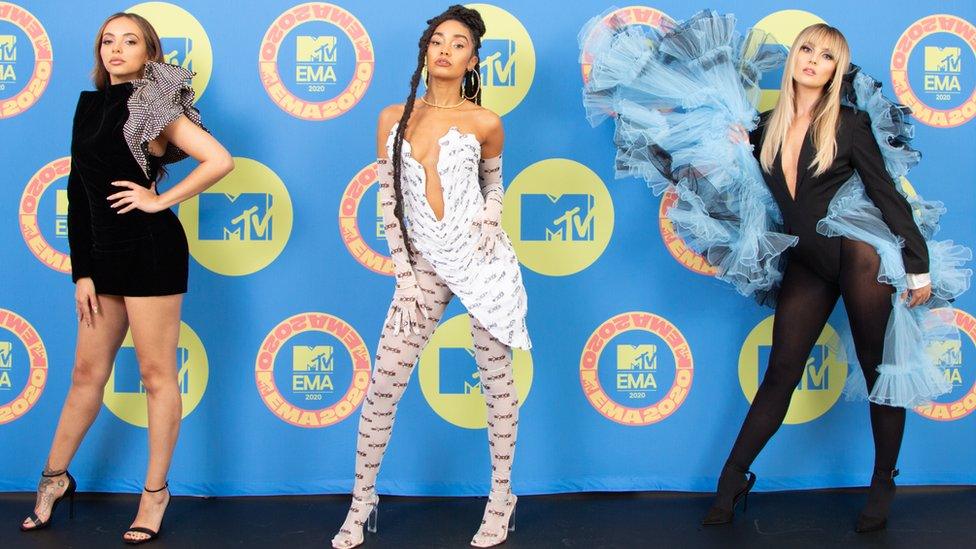
- Published12 May 2021
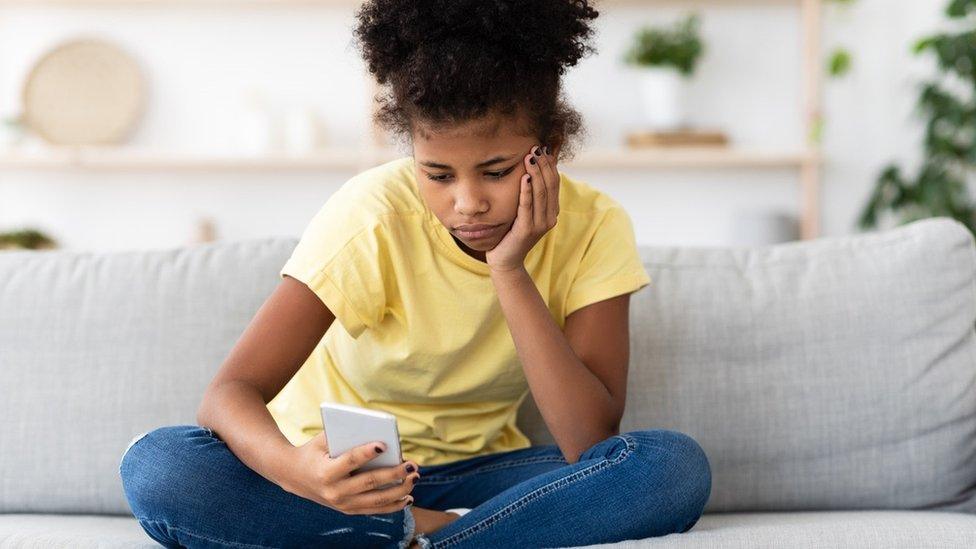
- Published17 June 2020
